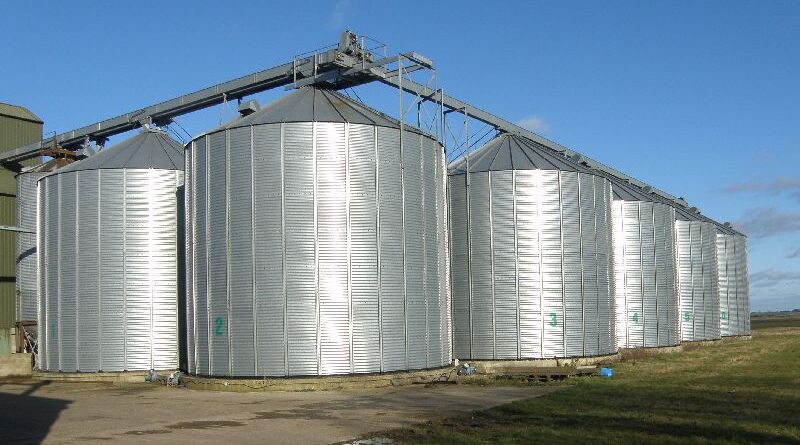Country’s first rice silos built through PPP mode to be commissioned in November
By Sandip Das
The country’s first silos for storing rice built under a private-public-partnership (PPP) model with the Food Corporation of India (FCI) will be commissioned next month.Two rice silos with combined capacity of 25,000 tonne have been built by the National Commodity Management Services Ltd (NCML) at Buxar and Kaimur in Bihar under the design-build-finance-operate-transfer model (DBFOT), according to a food ministry official.This is part of the government’s pilot project to set up steel silos for rice to prevent cereal wastage during storage. Officials said that technology for silos to store rice is still being developed, as at these facilities, the grain has to be stored at 15 degrees Celsius.
“Construction of 2 MT of silos is already completed and is being used, while a MT capacity silos are expected to be handed over to us next month,” an official told FE.In addition, 3.4 MT of silos construction was sanctioned six months ago, whose construction is expected to commence soon, the official added.
The estimated cost of constructing 1 MT silos is around Rs 1,000 crore. This is part of a Rs 9,000-crore project to build wheat silos with 9.4 MT of capacity during the next three-four years under the PPP mode. These silos will be spread over 196 locations across Punjab, Haryana, Madhya Pradesh, Uttar Pradesh, Rajasthan, Gujarat, Maharashtra, Bihar, West Bengal, Jammu, Uttarakhand and Kerala. Sources said that private entities, including Adani Agri Logistics and KCC Infrastructure, have been awarded the contracts. Though the country has silos for storing wheat, it is for the first time that a project for rice silos will be commissioned. Silos are considered sub-mandi yards, which allows the farmers to bring in their produce for procurement and reduces transportation costs.

Meanwhile, FCI is aiming to complete construction of 3 million tonne (MT) capacity wheat silos located across the country by November under the PPP model. Currently, the silos are being built under the DBFOT mode, under which the land is owned by the FCI and via the design, build, fund, own and operate (DBFOO) model, under which land belongs to private entities. The corporation will use these for storage of wheat through a lease of 30 years with private entities. Fixed storage charges to be paid by the FCI to private entities, based on a per-tonne, per-year basis, are the bidding parameters.
This fixed charge escalates by 70% of the wholesale price index and 30% of the consumer price index. In 2005, under a pilot project to modernise storage infrastructure, construction of 0.5 MT of storage capacity under the build, own and operate (BOO) model was carried out by Adani Agri Logistics. Subsequently, on recommendation of a high-level committee chaired by former food minister Shanta Kumar in 2015, construction of silos with railway sidings commenced. In 2005, under a pilot project to modernize storage infrastructure, the construction of 0.5 MT of storage capacity under the build, own, and operate (BOO) model was carried out by Adani Agri Logistics. Subsequently, on the recommendation of a high-level committee chaired by former food minister Shanta Kumar in 2015, the construction of silos with railway sidings commenced.
Then, the food ministry approved a ‘hub and spoke’ model because of challenges faced in land acquisition for railway sidings.Food ministry officials said that if food grains are stored in silos and transported in bulk, losses due to theft, pilferage, and transportation would be negligible compared to the food grains stored in warehouses.The FCI stores on an average 40 – 50 MT of rice and wheat on an average for ensuring supplies to beneficiaries under the National Food Security Act. Silos ensure better preservation of food grains.
This article has been republished from The Financial Express.

